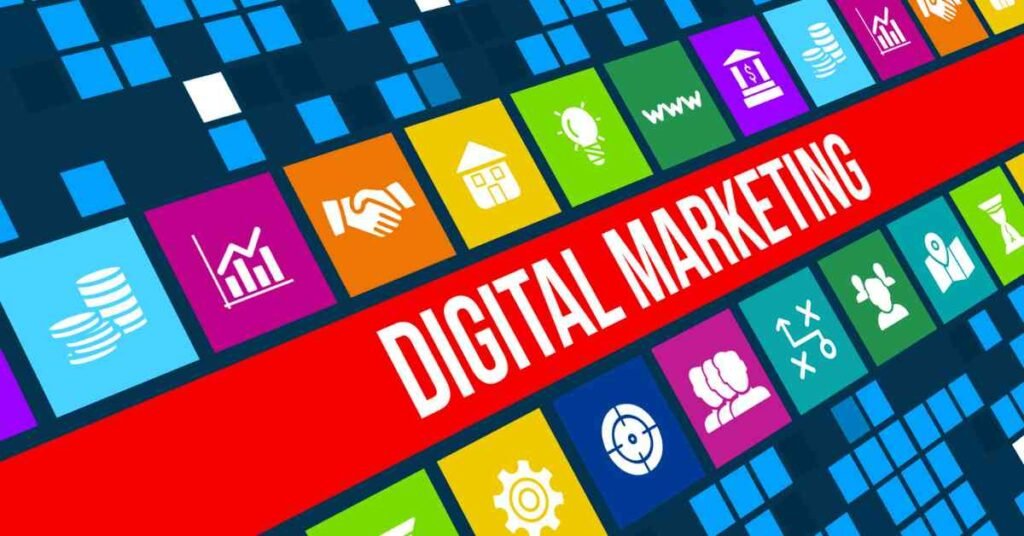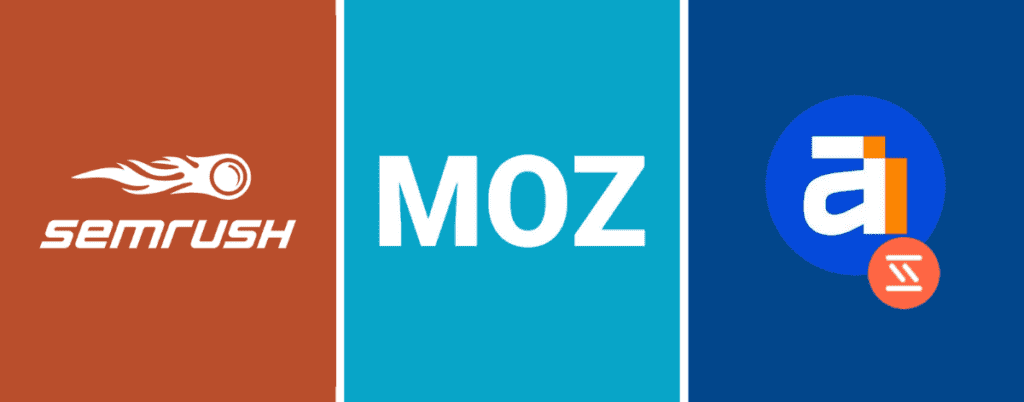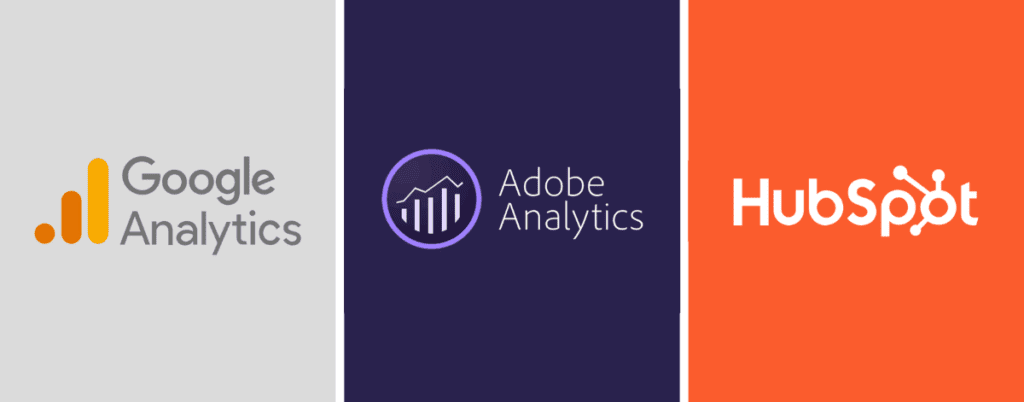
5 Essential Digital Marketing Tools Every Marketer Should Use

Why Digital Marketing Tools are Essential?
In today’s well connected digital world, marketing success depend on the effective use of tools created to navigate the complexities of online platforms. Digital marketing tools provide important insights into audience behavior, enabling marketers to create targeted strategies that resonate with their target demographic. These tools arrange processes, from SEO optimization to social media management, stabled businesses to stay active and responsive in a constantly evolving digital system.
With the vast use of channels and platforms available, these tools serve as multiple aids in maximizing reach, engagement, and conversion rates. Moreover, they facilitate data-driven decision-making, allowing marketers to track campaign performance in real-time and make informed adjustments to optimize results. In essence, digital marketing tools are the problem-solving of complex marketing strategies, offering the multiple needed to grab and stay ahead from competition and ever-changing consumer preferences.
Checkout five must use essential tools in digital marketing
- Search Engine Optimization (SEO) Tools: These tools help optimize website content, keywords, and structure to improve search engine rankings, increasing visibility and driving organic traffic to websites.
- Social Media Management Tools: These tools arrange the process of managing multiple social media platforms by offering features such as scheduling posts, analyzing engagement metrics, and monitoring brand mentions.
- Email marketing platforms: Such as Mailchimp, Constant Contact, and ConvertKit provide comprehensive solutions for creating, sending, and tracking email campaigns.
- Content Marketing Tools: Platforms helps marketers in creating, optimizing, and distributing content efficiently across channels for enhanced audience engagement and campaign effectiveness.
- Analytics and reporting tools: It offer detailed insights into digital marketing performance, enabling data-driven decision-making and strategy selection for maximizing ROI.

1. Search Engine Optimization (SEO) Tools
Search Engine Optimization (SEO) is the practice of optimizing website content and structure to improve its visibility in search engine results pages (SERPs). It involves techniques such as keyword research, on-page optimization, and building high-quality backlinks to increase organic traffic from search engines like Google. Effective SEO strategies aim to enhance a website’s relevance and authority, ultimately boosting its ranking and visibility to target audiences searching for relevant information or products.
Also, read: Know all about Search Engine
Importance of SEO in digital marketing
- Visibility and Traffic: SEO enhances a website’s visibility on search engines, driving organic traffic.
- Credibility and Trust: Higher rankings establish credibility and trust with users.
- Cost-Effectiveness: Compared to paid ads, SEO provides sustainable traffic growth without ongoing costs.
- Targeted Reach: Targeting specific keywords ensures content reaches relevant audiences.
- Adaptability: Continuous refinement keeps strategies competitive amidst evolving algorithms.
Introduction to popular SEO tools such as SEMrush, Moz, Ahrefs.
- Comprehensive SEO toolkit offering features for keyword research, competitor analysis, and site audits.
- Provides insights into organic search rankings, backlink profiles, and advertising strategies.
- Helps identify high-performing keywords and opportunities for optimization.
- Offers features for tracking keyword positions, monitoring site health, and analyzing traffic trends.
- Suitable for businesses of all sizes seeking to improve their online visibility and competitiveness.
- Known for its robust suite of SEO tools, including Moz Pro and Moz Local.
- Offers features such as keyword research, rank tracking, and link analysis.
- Provides site audits to identify technical SEO issues and opportunities for improvement.
- Moz Local helps businesses manage their online presence across multiple directories and platforms.
- Ideal for marketers and SEO professionals looking for actionable insights to boost their website’s performance.
- Renowned for its extensive backlink database and advanced keyword research capabilities.
- Enables users to analyse competitor backlink profiles and identify link-building opportunities.
- Offers features for site audits, keyword tracking, and content analysis.
- Provides insights into organic search traffic, top-performing content, and keyword difficulty.
- Trusted by SEO professionals and digital marketers for its comprehensive data and user-friendly interface.

2. Social Media Management (SMM) Tools
Social media management involves analysing and optimizing an organization’s presence across various social media platforms. This includes creating and scheduling content, engaging with followers, and monitoring performance metrics. Effective social media management aims to enhance brand awareness, manage community engagement, and drive conversions by strategically having each platform’s unique features and audience demographics. It also helps to staying ahead of trends, responding to feedback, and adapting strategies to align with evolving consumer behaviours.
Importance of social media in modern marketing strategies
- Widespread Reach: Social media enables businesses to connect with global audiences, enhancing brand visibility.
- Direct Engagement: Platforms facilitate direct interaction with customers, fostering loyalty and trust.
- Efficient Content Distribution: Content can be disseminated quickly to a broad audience, showcasing products and updates effectively.
- Precise Targeting: Advanced advertising tools allow businesses to reach specific demographics, enhancing ROI.
- Data-driven Optimization: Robust analytics provide valuable insights for refining strategies and improving campaign performance.
Introduction to tools like Hootsuite, Buffer, Sprout Social
- A widely-used social media management platform offering features for scheduling posts, monitoring conversations, and analyzing performance across multiple social media networks.
- Provides a centralized dashboard for managing social media accounts, streamlining workflow, and collaborating with team members.
- Offers a range of plans catering to individuals, small businesses, and enterprise-level organizations.
- Integrates with various social media platforms, allowing users to publish content seamlessly and track engagement metrics effectively.
- Known for its simplicity and user-friendly interface, Buffer enables users to schedule posts, analyse performance, and manage multiple social media accounts effortlessly.
- Offers features for content planning, including a browser extension for easy content curation and scheduling.
- Provides detailed analytics to track post engagement, reach, and audience demographics, helping users refine their social media strategies.
- Suitable for individuals, small businesses, and agencies looking for a straightforward solution to manage their social media presence efficiently.
- A comprehensive social media management platform offering a suite of tools for publishing, engagement, analytics, and listening.
- Allows users to schedule and publish content, engage with followers, and monitor conversations across various social media channels from a unified dashboard.
- Provides robust analytics and reporting features to track performance metrics, measure ROI, and gain insights into audience behaviour.
- Offers advanced listening capabilities to monitor brand mentions, industry trends, and competitor activity, enabling proactive engagement and strategy refinement.

3. Email Marketing Platforms Tools
Email marketing holds a major role in digital strategies due to its direct, personalized communication with subscribers. Its high ROI, segmentation capabilities, and automation features make it a powerful tool for engaging target audiences effectively. By delivering created content, nurturing leads, and promoting products or services, businesses can capture conversions and maintain long-term customer relationships. Although, email marketing’s analytics enable continuous optimization, ensuring campaigns remain relevant and impactful. Overall, it remains a cost-effective and efficient method for achieving marketing objectives and driving revenue growth in the digital landscape.
Importance of email marketing strategy
- Direct Communication: Email marketing allows direct communication with your audience, enabling personalized messages and targeted content delivery.
- Cost-Effective: It’s a cost-effective method compared to traditional marketing channels like print or TV ads, making it suitable for businesses of all sizes.
- ROI: Provides a high return on investment (ROI) when executed effectively, with the potential to generate significant revenue for businesses.
- Builds Relationships: Helps in building and nurturing relationships with customers through regular communication, fostering brand loyalty and trust.
- Measurable Results: Offers comprehensive analytics and tracking tools to measure campaign performance, enabling businesses to refine strategies based on data insights.
Introduction to platforms like Mailchimp, Constant Contact, ConvertKit
- A popular email marketing platform known for its user-friendly interface and extensive features.
- Offers tools for creating, sending, and tracking email campaigns, as well as marketing automation and audience segmentation.
- Provides customizable templates, A/B testing, and detailed analytics to optimize campaign performance.
- Suitable for businesses of all sizes, from small startups to large enterprises, seeking to engage with their audience through email marketing.
- Another widely-used email marketing platform, offering features for creating professional-looking emails, managing contact lists, and tracking results.
- Provides customizable templates, social media integration, and list segmentation to personalize campaigns and improve engagement.
- Offers additional tools for event marketing, online surveys, and social media management, making it a comprehensive solution for small businesses and nonprofits.
- Known for its user-friendly interface and excellent customer support, making it an ideal choice for those new to email marketing.
- Geared towards bloggers, content creators, and online entrepreneurs, ConvertKit specializes in email automation and audience segmentation.
- Offers features such as visual automation workflows, customizable opt-in forms, and landing pages to grow and engage email subscribers.
- Provides advanced tagging and segmentation capabilities, allowing users to deliver targeted content based on subscriber behaviour and interests.
- Known for its simplicity and focus on creators, ConvertKit is ideal for those looking to build and monetize their audience through email marketing.

4. Content Marketing Tools
Content marketing tools provides a variety of software and platforms designed to streamline the creation, distribution, and analysis of content. These tools assist in various aspects of content marketing, including ideation, creation, optimization, and distribution across multiple channels. Features often include content planning calendars, collaboration tools, keyword research, and performance analytics. By leveraging content marketing tools, businesses can efficiently manage their content strategy, ensure consistency in messaging, and drive engagement with their target audience. Additionally, these tools help in identifying trends, optimizing content for search engines, and measuring the effectiveness of content campaigns, ultimately contributing to increased brand visibility and audience engagement.
Importance of content marketing strategy
- Audience Engagement: Content marketing helps to engage and connect with your target audience by providing valuable, relevant, and consistent content.
- Brand Awareness: It increases brand visibility and awareness by creating and distributing valuable content that resonates with your audience.
- Lead Generation: Quality content attracts potential customers, driving them towards your products or services, thus aiding in lead generation.
- Establishing Authority: Through informative and authoritative content, you can establish your brand as a thought leader in your industry, gaining trust and credibility.
- SEO Benefits: Regularly publishing high-quality content optimized with relevant keywords improves search engine visibility, driving organic traffic to your website.
Introduction to tools like BuzzSumo, CoSchedule, Grammarly
- A tool for content discovery and analysis.
- Helps identify trending topics and popular content.
- Provides insights into competitor performance.
- Facilitates influencer research and outreach.
- Useful for content marketers seeking to create engaging and shareable content.
- A comprehensive marketing calendar and project management tool.
- Streamlines content planning and scheduling across multiple channels.
- Facilitates collaboration among team members.
- Offers features for social media scheduling and analytics.
- Ideal for marketers and teams looking to organize and optimize their content strategy.
- A writing assistant tool for grammar and spell-checking.
- Provides real-time feedback to improve writing quality.
- Offers suggestions for clarity, conciseness, and tone.
- Compatible with various platforms, including web browsers and word processing software.
- Valuable for writers, content creators, and professionals seeking to enhance their written communication skills.

5. Analytics and Reporting Tools
Analytics and reporting tools are essential in digital marketing for tracking and analyzing the performance of campaigns and online availability. They collect data on metrics such as website traffic, user behavior, and conversion rates, providing valuable insights into the effectiveness of marketing strategies. By evaluating these analytics, marketers can make informed decisions, optimize campaigns, and allocate resources effectively to maximize ROI. These tools play a critical role in measuring the success of marketing efforts and driving continuous improvement in digital marketing strategies.
Importance of analytics and reporting strategy
- Data-Driven Decision Making: Analytics and reporting provide valuable insights derived from data, facilitating informed decision-making processes.
- Performance Evaluation: They allow businesses to track key performance indicators (KPIs) and evaluate the effectiveness of strategies and initiatives.
- Identifying Trends: Analytics help in identifying trends and patterns within data, enabling organizations to anticipate market shifts and adapt accordingly.
- Resource Optimization: Reporting enables organizations to allocate resources more effectively by identifying areas of inefficiency or opportunity.
- Risk Management: Analytics can help in identifying potential risks and vulnerabilities, allowing proactive measures to mitigate them.
Introduction to tools like Google Analytics, Adobe Analytics, HubSpot
- Widely used free analytics tool offered by Google.
- Provides comprehensive insights into website traffic, user behavior, and conversions.
- Tracks key metrics such as page views, bounce rates, and session durations.
- Offers advanced features like goal tracking, e-commerce tracking, and audience segmentation.
- Ideal for businesses of all sizes looking to understand and optimize their online performance.
- Advanced analytics solution for enterprise-level businesses.
- Offers real-time tracking and reporting capabilities.
- Provides deep insights into customer behavior across various digital channels.
- Integrates seamlessly with Adobe Marketing Cloud for comprehensive marketing analytics.
- Suitable for large organizations seeking robust analytics and customization options.
- All-in-one marketing platform offering analytics, CRM, and automation tools.
- Provides insights into website performance, lead generation, and customer engagement.
- Tracks metrics such as website traffic, email open rates, and social media interactions.
- Offers features for lead scoring, attribution reporting, and marketing ROI analysis.
- Ideal for small to mid-sized businesses looking for an integrated marketing solution to drive growth and efficiency.
In conclusion, the five essential digital marketing tools discussed in this blog post are important tools for marketers to getting advantage in today’s competitive digital world. From optimizing website visibility with SEO tools like SEMrush and Moz, to effectively managing social media presence through platforms like Hootsuite and Buffer, these tools offer unlimited opportunities for audience engagement and conversion.
Additionally, leveraging email marketing platforms such as Mailchimp and Constant Contact, along with content marketing tools like BuzzSumo and Grammarly, allows marketers to create compelling campaigns that resonate with their target audience. Finally, analytics and reporting tools like Google Analytics, Adobe Analytics, and HubSpot provide invaluable insights into campaign performance, enabling data-driven decision-making and continuous optimization. By incorporating these essential tools into their digital marketing, marketers can enhance efficiency, maximize ROI, and stay ahead of their competitors in today’s digital segmentation.
Related Articles
Frequently Asked Questions
Digital marketing tools offer numerous benefits, including streamlining tasks, improving efficiency, enhancing targeting capabilities, providing valuable insights through analytics, and ultimately increasing the effectiveness of marketing campaigns.
Certainly! Some examples of essential digital marketing tools every marketer should use include Google Analytics for tracking website traffic and performance, Hootsuite for managing social media accounts, Mailchimp for email marketing campaigns, SEMrush for SEO analysis and keyword research, and Canva for creating engaging visual content.
Yes, absolutely. While the specific needs and scale of marketing efforts may vary between businesses, the fundamental benefits provided by these tools—such as improving efficiency, enhancing targeting, and analyzing campaign performance—are applicable to businesses of all sizes, from startups to large corporations.

VAIBHAV GUPTA
DIGITAL MARKETER
I’m Vaibhav Gupta the founder of DCampaign Marketing. I’m having experience for more than 4 year in the field of digital marketing as well blogging.

